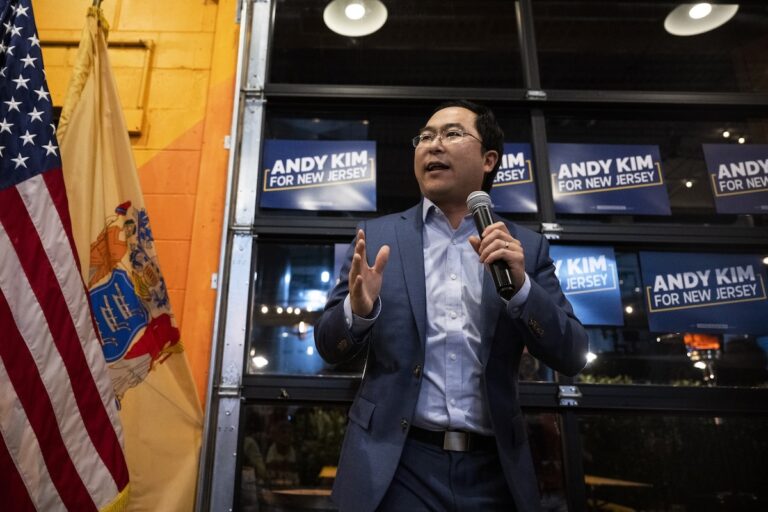
“We have a very corrupt country, a very corrupt country,” President Trump stated at Mar-a-Lago last week, “and it’s a sad thing to say, but we’re figuring it out now.” While Democrats may dispute two of Trump’s claims — that the Trump Administration is effectively solving corruption and that it is fueled by Social Security fraud — they likely would agree that corruption is a large issue plaguing American government.
Bipartisan unity over condemning political corruption came into focus just one week before Trump’s remarks. Former Illinois Gov. Rod Blagojevich received a pardon from the president on Feb. 11, five years after Trump commuted the disgraced ex-governor’s prison sentence. Blagojevich was elected as a Democrat, but was impeached in a 114-1 vote by the Illinois House following his arrest on federal corruption charges. Among the charges was his attempt to sell the U.S. Senate seat left behind by then-President-elect Barack Obama.
After the Illinois Senate voted 59-0 to remove him from office, Blagojevich engaged on a whistle-stop tour of talk shows, reality shows, and unfortunate interviews. He even made a four-episode appearance on “Celebrity Apprentice,” culminating in Trump firing him. The pair’s long-standing connection led not only to Blagojevich’s pardon but his strong political support for Trump and a new identity as a self-proclaimed “Trump-ocrat.”
Despite his ideological conversion, the pardon was condemned by Democrats and Republicans in Illinois. John Curran, the Republican leader of the Illinois Senate, told reporters that “Illinois taxpayers have and continue to be burdened with the cost of public corruption, and this pardon sends the wrong message.”
Trump’s coziness with corruption must be a clear focus of Democratic Party messaging throughout his term. Democrats should be on the hunt for new attack lines following the party’s failure to defeat Trump in 2024 — their emphasis on protecting democracy and the rule of law did not help electorally. Not only did Kamala Harris’s campaign push for protecting institutions overwhelmingly distrusted by Americans, it also emphasized seemingly abstract, immaterial issues.
To many voters, the tangible issues for which Trump claimed to offer solutions — such as inflation and crime — were far more pressing than the constitutional freedoms Harris highlighted. The United States is not beyond material-based politics; winning political campaigns must still focus primarily on economic needs or so-called kitchen-table issues.
As Sen. Curran stated, taxpayers are burdened with the cost of corruption — directly harming voters in a material sense. The same cannot be said of Trump unilaterally closing USAID or firing inspectors general without a 30-day notice. While both actions will marginally degrade legal constraints on the presidency and bring about other harmful consequences, they do not overtly harm Americans and are therefore poor targets for political attack.
In only one month, the Trump Administration has routinely aided political corruption in several cases beyond Blagojevich. Most notable is the still-unfolding saga of Eric Adams in which the embattled New York City mayor was indicted for taking bribes from individuals associated with the Turkish government in exchange for opening a new Turkish consulate. Now, Trump’s Justice Department is attempting to drop the charges against Adams in exchange for his cooperation with the Administration’s deportation agenda.
Flagrant instances of corruption will surely continue to be the norm, especially considering that both Trump and his advisor Elon Musk maintain control of private companies impacted by the government actions they oversee. Already, Musk’s ongoing attempt to shutter the Consumer Financial Protection Bureau directly aids his plans for the social media platform X.
The benefits of focusing on corruption in the Trump White House should be clear to Democrats, but their messaging cannot stop there. Harris’s loss was not solely fueled by her failure to depict Trump as someone to root against — she also did not adequately provide voters with something to root for. Simply standing against a particular politician, idea, or party is not enough for Democrats to build a lasting political coalition. In addition to demonstrating how Trump tangibly harms Americans, the Democratic Party must offer something clearly beneficial to voters. Campaigning on returning to the pre-Trump status quo does nothing to address the issues that led to Trump’s re-election in the first place. Instead, the party must reinvent itself by becoming bolder in both its policy positions and rhetoric.
The Zeitgeist aims to publish ideas worth discussing. The views presented are solely those of the writer and do not necessarily reflect the views of the editorial board.



